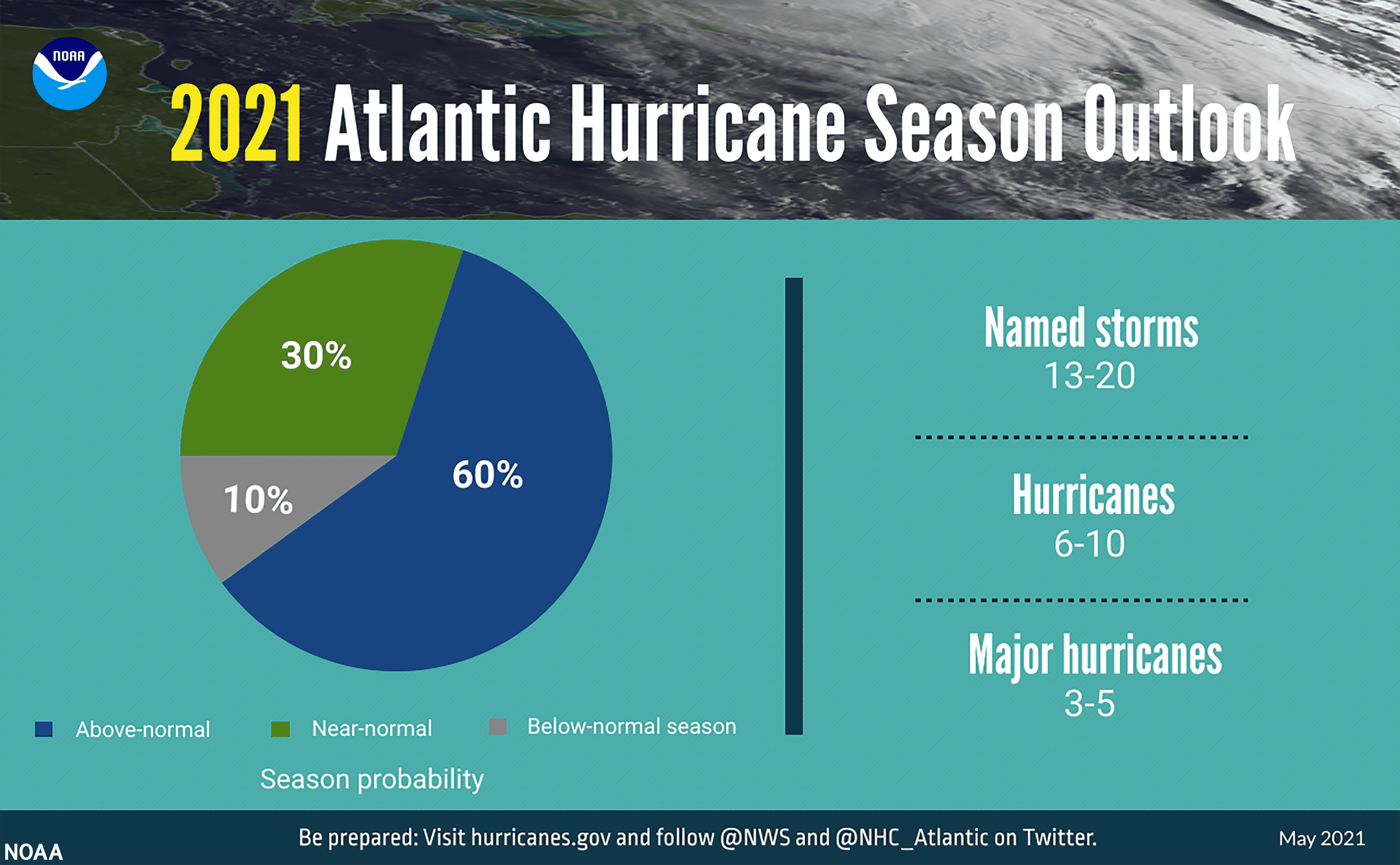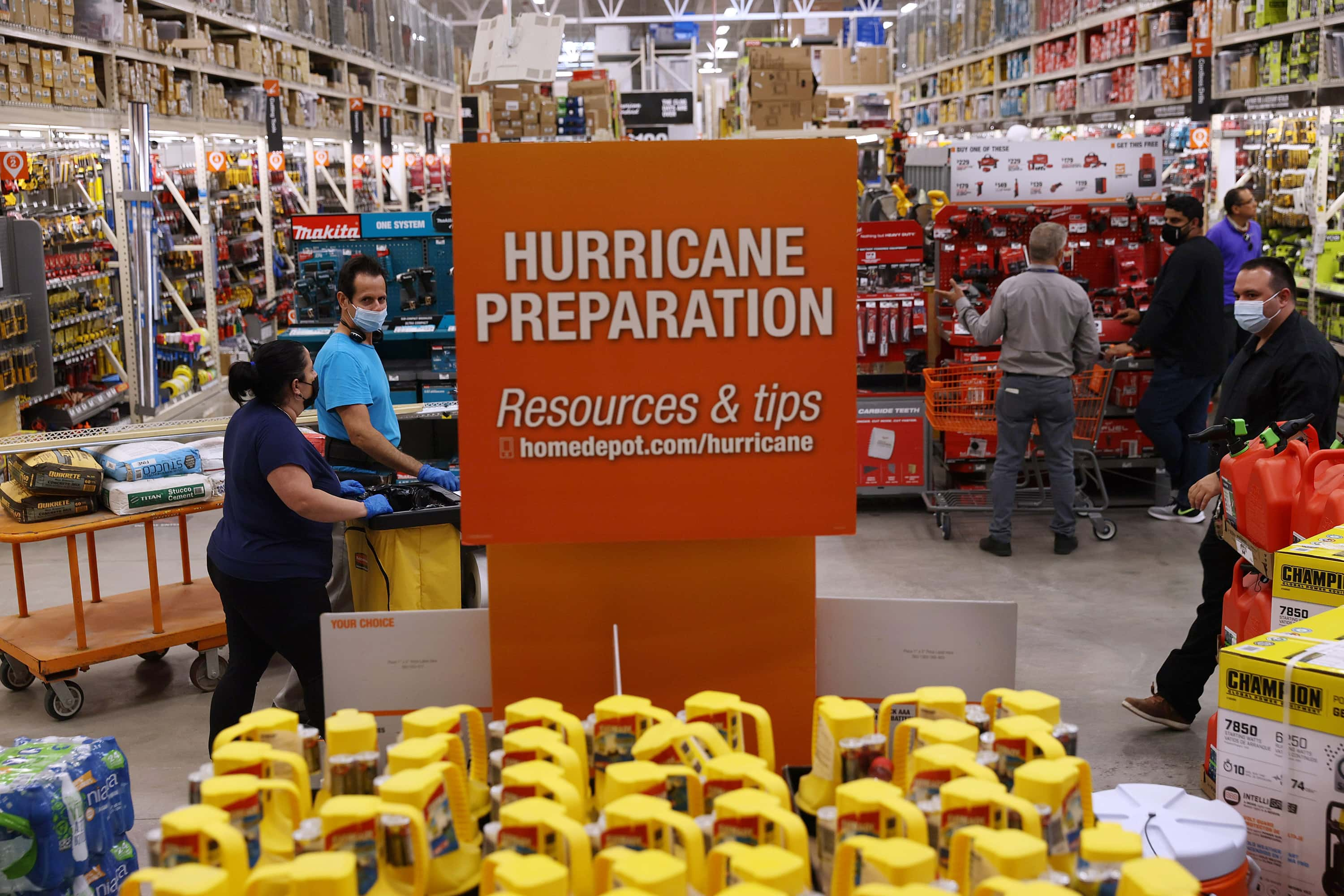2021 Atlantic Hurricane Season: Full list of storm names and what to expect

The National Oceanic and Atmospheric Administration (NOAA) has released data from the 2021 hurricane season, expected to last from June 1 to November 30. The agency says this year there is a 60 per cent chance of an above-normal season, but it won't be as bad as 2020.
Amid the Covid-19 pandemic, Hurricane Delta ripped through Louisiana in October 2020, while also impacting Alabama, Georgia, Mississippi and the Carolinas. It was the fourth named storm to hit Louisiana in 2020. In August, Hurricane Laura made landfall in the state, reportedly as one of the strongest storms to hit Louisiana in 160 years. Recovery proved tough for many states that were battling the Covid-19 pandemic at the same time as the hurricane. Another example of this was Texas after Hurricane Hanna.
RELATED ARTICLES
Global warming has increased threat of hurricanes becoming stronger by 8% a decade, study shows
US military 'precariously unprepared' for climate change, warns report
With vaccination rates rising and Covid-19 cases falling, the 2021 season may not be as challenging. The good news is, the NOAA doesn't expect this year to be as bad as 2020, but it is still cautioning residents to take appropriate preventive measures. "Although NOAA scientists don’t expect this season to be as busy as last year, it only takes one storm to devastate a community," said Ben Friedman, acting NOAA administrator.

2021 tropical cyclone names
This year, the NOAA expects 13-20 named storms, with 6-10 developing into hurricanes. Of those, the NOAA expects 2-5 major hurricanes to develop. The press release says the agency "provides these ranges with a 70% confidence". Storms are named by the World Meteorological Organization (WMO) since they apply globally. This year, the names are: Ana, Bill, Claudette, Danny, Elsa, Fred, Grace, Henri, Ida, Julian, Kate, Larry, Mindy, Nicholas, Odette, Peter, Rose, Sam, Teresa, Victor and Wanda.
For now, we don't know which of these storms will develop into major hurricanes, but this year the NOAA should be able to predict so earlier than before. That's because the agency has "made several updates to products and services that will improve hurricane forecasting". Among those updates includes an upgraded probabilistic storm surge model, called P-Surge. The agency says the "upgrade extends the lead time of P-Surge forecast guidance from 48 to 60 hours in situations where there is high confidence".
Back in March, the agency upgraded its Global Forecast System (GFS) to improve forecasting from 10 days out to 16 days. That will give the agency and the public more time to prepare for major hurricanes and storms well in advance. The agency is also deploying a range of technologies, from drones to drifters, to track tropical storms with more precision. "The forecasters at the National Hurricane Center are well-prepared with significant upgrades to our computer models, emerging observation techniques, and the expertise to deliver the life-saving forecasts that we all depend on during this, and every, hurricane season," Friedman said.

Matthew Rosencrans, of the Climate Prediction Centre, said, "Warmer-than-average sea surface temperatures in the tropical Atlantic Ocean and Caribbean Sea, weaker tropical Atlantic trade winds, and an enhanced west African monsoon will likely be factors in this year’s overall activity." The government is urging people to prepare in advance, and take as many precautions as possible. "Now is the time for communities along the coastline as well as inland to get prepared for the dangers that hurricanes can bring," Gina Raimondo, the Secretary of Commerce said.
If you want help preparing, you can visit ready.gov to learn about what steps you can take to protect your family and home. FEMA Administrator Deanne Criswell is also urging residents to download the FEMA app, so they can get alerts and access preparedness information.










